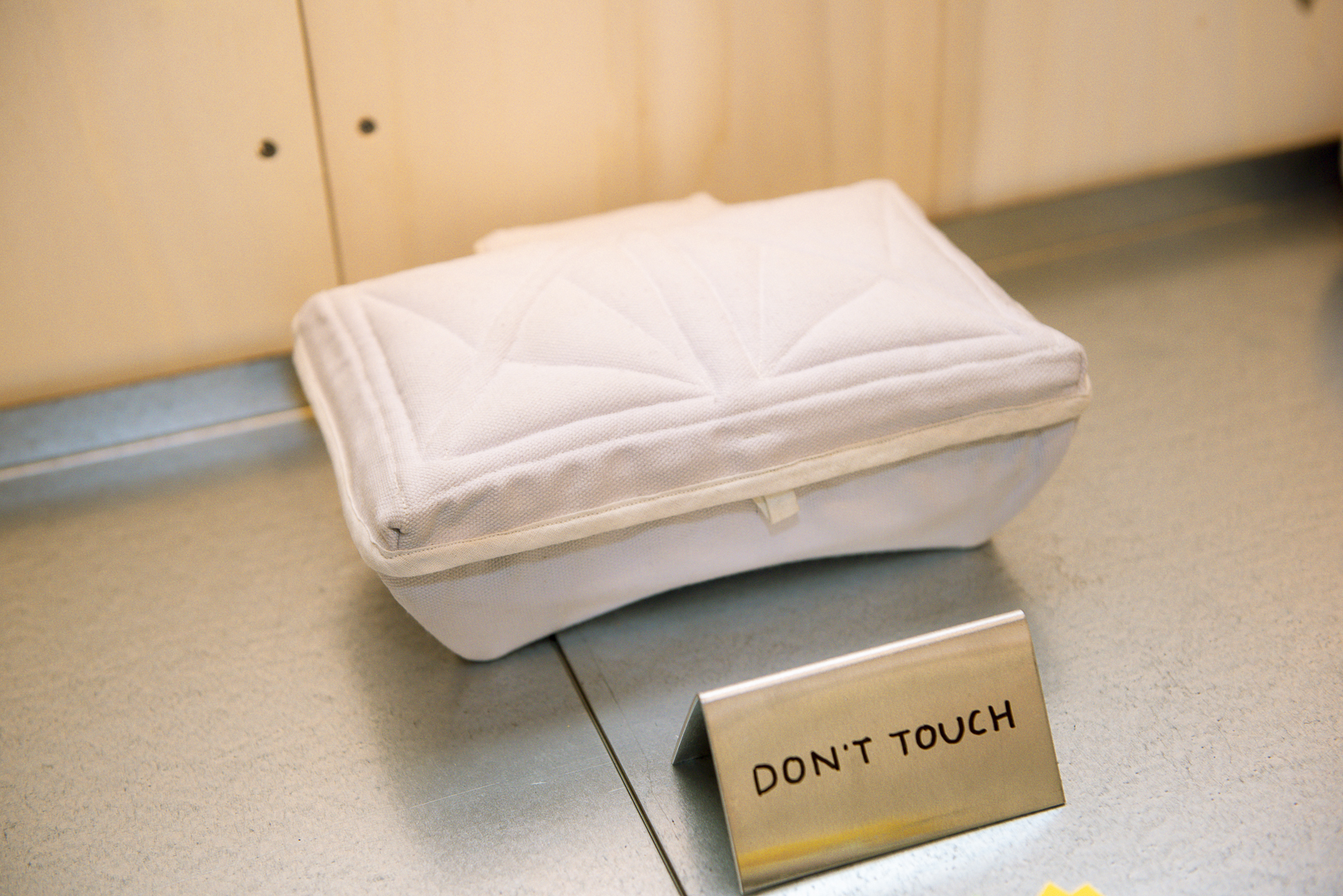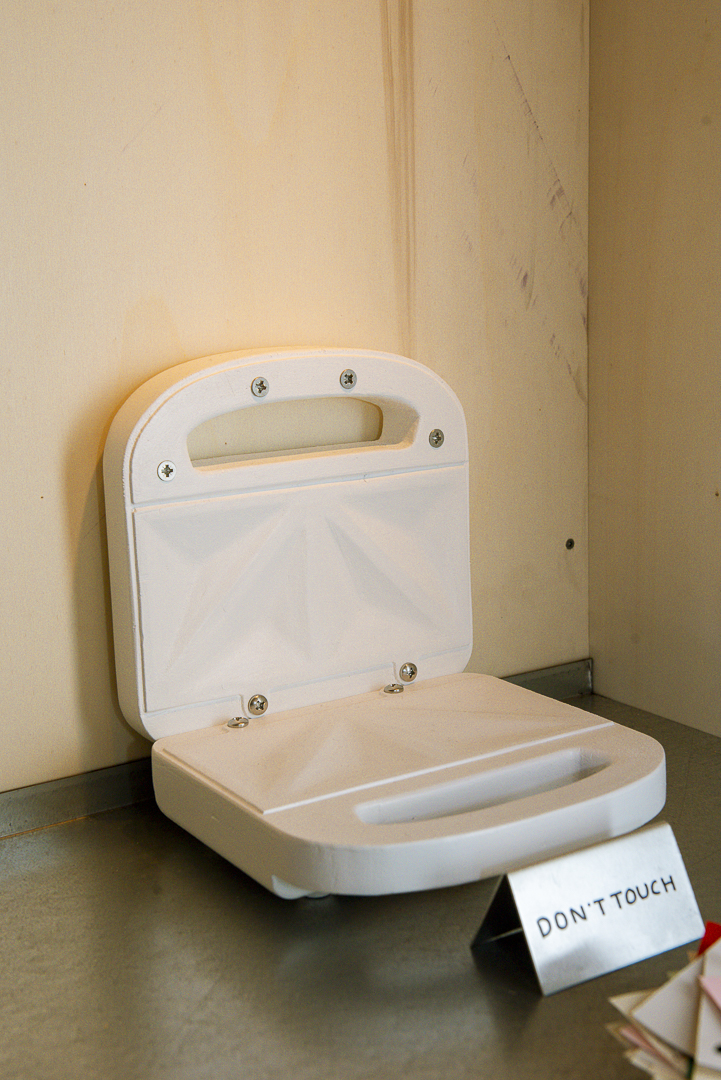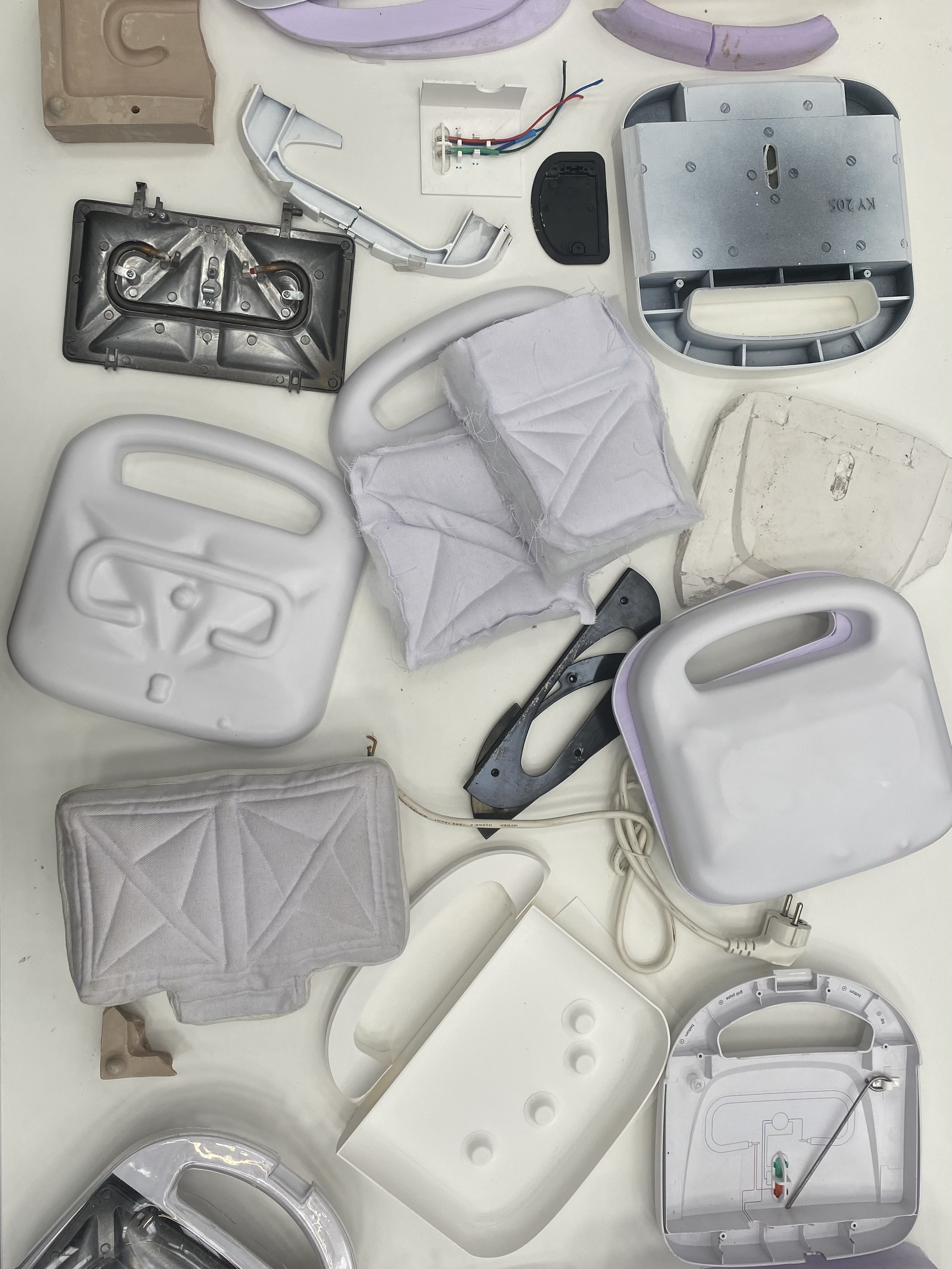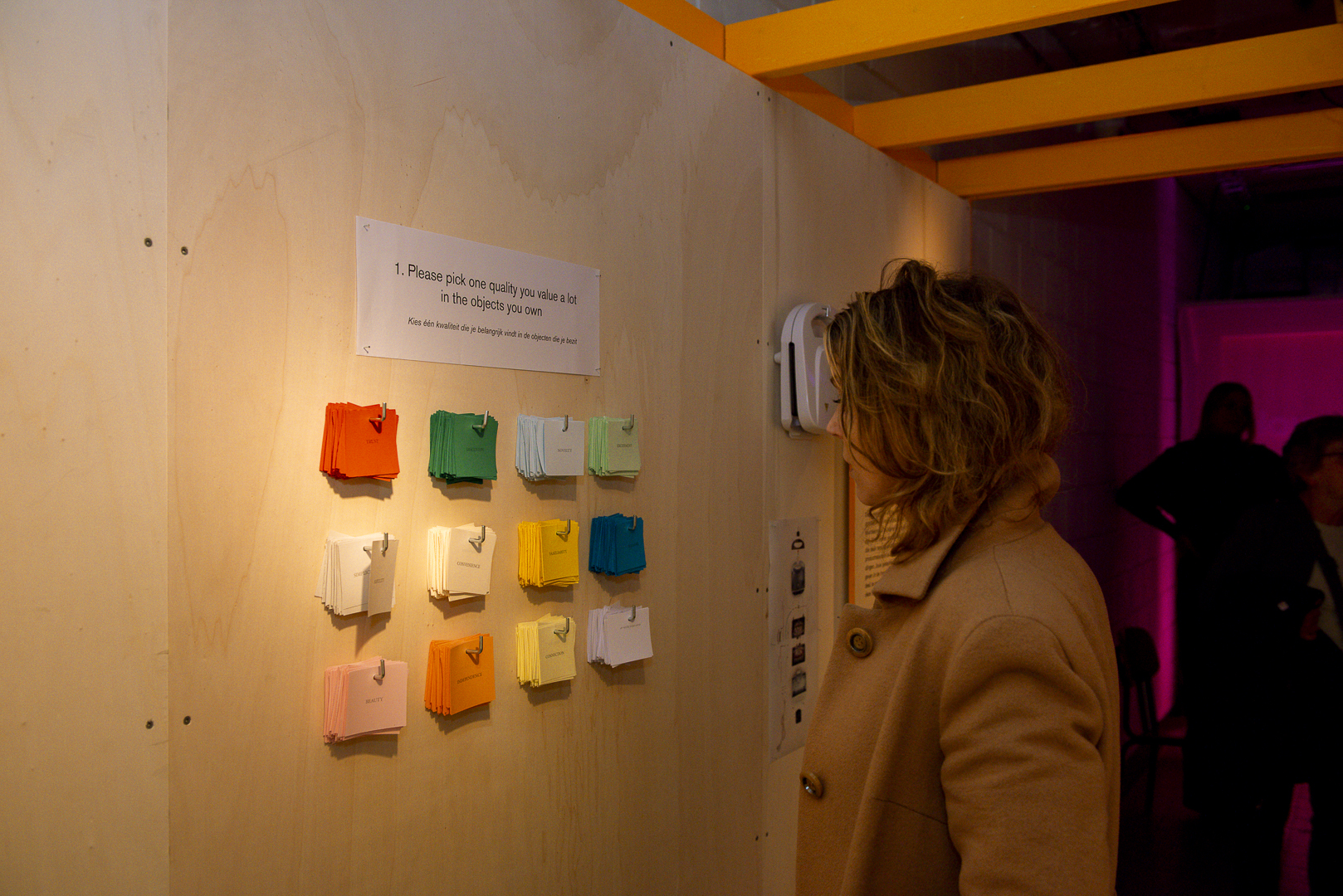Speculative Toastie Maker
How do we design products that last a lifetime?
This ongoing master's graduation project aims to develop an approach to design products with enhanced
durability. This research doesn't solely focus on extending the physical longevity and repairability of
objects to extend their lifespan; it places equal importance on their emotional durability.
Designing products that are both long-lasting and repairable is a relatively straightforward objective when compared to the challenge of designing items that people develop a strong attachment to and actively strive to maintain. Although it's challenging to directly influence this connection as a designer, research from TU Delft and various theories discuss the reasons behind emotional attachment, which designers can consider.
As a case study, the student redesigned a toastie maker nine times, each iteration guided by a unique aspect of this theory. She explored different ways of experiencing and interacting with our possessions through heightened sensory awareness, an appreciation of the familiar, and the excitement that can come from being challenged by objects in our daily lives. Moreover, she delves into the concept of objects having a life of their own, an understanding of the creative process which went into their inception, how they change over time, and what we are confronted with the moment they break down.
This design exercise serves multiple purposes. It not only casts new light on a seemingly familiar object but it also acts as a critical step in the design process. Through this exhibition, you are invited to participate in the transition to the next phase of the project as it shifts from speculation to reality. Your insights and input will play an important role in shaping the next stage of the design.
Designing products that are both long-lasting and repairable is a relatively straightforward objective when compared to the challenge of designing items that people develop a strong attachment to and actively strive to maintain. Although it's challenging to directly influence this connection as a designer, research from TU Delft and various theories discuss the reasons behind emotional attachment, which designers can consider.
As a case study, the student redesigned a toastie maker nine times, each iteration guided by a unique aspect of this theory. She explored different ways of experiencing and interacting with our possessions through heightened sensory awareness, an appreciation of the familiar, and the excitement that can come from being challenged by objects in our daily lives. Moreover, she delves into the concept of objects having a life of their own, an understanding of the creative process which went into their inception, how they change over time, and what we are confronted with the moment they break down.
This design exercise serves multiple purposes. It not only casts new light on a seemingly familiar object but it also acts as a critical step in the design process. Through this exhibition, you are invited to participate in the transition to the next phase of the project as it shifts from speculation to reality. Your insights and input will play an important role in shaping the next stage of the design.
About the designers
Chris holds a personal belief in the value of repairing, but recognises the equal importance
of what precedes – the desire to repair. Her specific interest lies in the everyday objects that surround us
and seem fixed in their existence, and how they will position themselves within this graduation research.
By making prototypes early in the process, Chris hopes to bring some of these ideas to life. She also wants to look at the physical implications of her ideas, forcing her to have a degree of realism in the project from an early stage. The prototyping techniques she uses are those she believes best suited to expressing the theoretical ideas, and not the other way around. This also functions as a way to analyse the original object and take the first steps in redesigning it.
By making prototypes early in the process, Chris hopes to bring some of these ideas to life. She also wants to look at the physical implications of her ideas, forcing her to have a degree of realism in the project from an early stage. The prototyping techniques she uses are those she believes best suited to expressing the theoretical ideas, and not the other way around. This also functions as a way to analyse the original object and take the first steps in redesigning it.
What we do at TU Delft
Industrial Design Engineering?
At TU Delft Industrial Design Engineering we have a big focus on repairability and the circular economy.
Classes such as the Bachelor courses Design for Sustainability and Understanding Product Engineering
and the Master elective Repair! contribute to this. Furthermore researchers such as, professors
Ruud Balkenende,
Conny Bakker
and senior lecturer
Bas Flipsen
actively contribute to this research, through
the
Circular Design Lab
and professor
Ruth Mugge’s Vici grant
for example.




